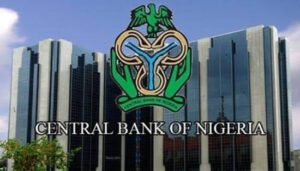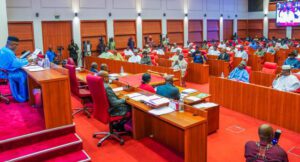


CIBN records N1.37bn profit, elects 23rd president
The Chartered Institute of Bankers of Nigeria (CIBN) has announced a historic net operating surplus of N1.37 billion for 2023, marking a significant growth from the N837.94 million recorded in 2022.
Its President, Dr Ken Opara, revealed this achievement during the institute’s Annual General Meeting (AGM) on Saturday in Lagos.
He said the net operating surplus, which was above one billion Naira earmarked for 2023, represented a 63.60 percent growth.
The president, who also coordinated and chaired the annual general meeting, reeled out his achievements in ICT, revenue drive, capacity building, legacy projects, and support in ongoing economic policy reforms in Nigeria, among others.
“I am particularly delighted that our institute continued to wax stronger financially, notwithstanding the economic downturns and headwinds in the year 2023.
“It is on record that our institute for the first time crossed the one billion Naira mark by achieving a Net Operating Surplus of N1.371 billion in 2023 when compared with N837.943 million achieved in 2022, representing a growth of 63.60 percent.
“Similarly, total revenue grew from N2.065 billion recorded in 2022 to N2.782 billion in 2023, representing 34.72 percent growth, while total assets grew from N7.821 billion in 2022 to N9.119 billion in 2023.
“The cost-to-income ratio for the year ended December 31, 2023, stood at 50.72 percent, down from 59.41 percent in the corresponding period in 2022. This ratio is way below the approved Governing Council threshold of 61 per cent for the 2023 financial year.
“I am persuaded that with prudent and efficient management of resources, as well as diligent execution of our strategic plan, our institute will sustain this northward trajectory,” he said.
Opara, who took over leadership in May 2022, also announced a planned road show to flag off the collaboration with Pan-African Payment and Settlement System on April 25 in Lagos to promote exportation.
He explained how his administration, through teamwork, left indelible marks in the banking industry in an era characterised by disruptions, volatility in the economy, and other turbulence.
Opara, also the Chairman of Council, CIBN, explained youth engagement initiatives aimed at checkmating mass migration of the nation’s young professionals out of the country to other advanced economies.
He thanked CIBN members, stakeholders, family and friends for their support that ensured the success of his tenure.
The external auditors, Rosewater Partners, after the presentation of facts and figures, affirmed that the financial position of the CIBN was in agreement with the book of accounts.
The Chairman of the CIBN Audit Committee also affirmed that the accounting and reporting policies of the institute were in accordance with legal requirements and ethical practices
Prof. Pius Olanrewaju was elected as the new President of the institute, along with other elected officers for the 2024-2026 tenure.
The results of the 72-hour electronic voting election was announced during the AGM by Mrs Caroline Anyanwu, Chairperson of the CIBN Election Committee at Bankers House in Lagos.
The new president-elect was the immediate past First Vice President of the institute.
Olarenwaju, in his acceptance speech, described the outgoing president as “a great leader” who had positioned the institute on a path for growth and greatness.
He thanked the leadership and members of the institute while promising to build on the legacies of Opara, his predecessor, in office.
He promised to unveil his agenda during his inauguration at an investiture programme scheduled for May.



